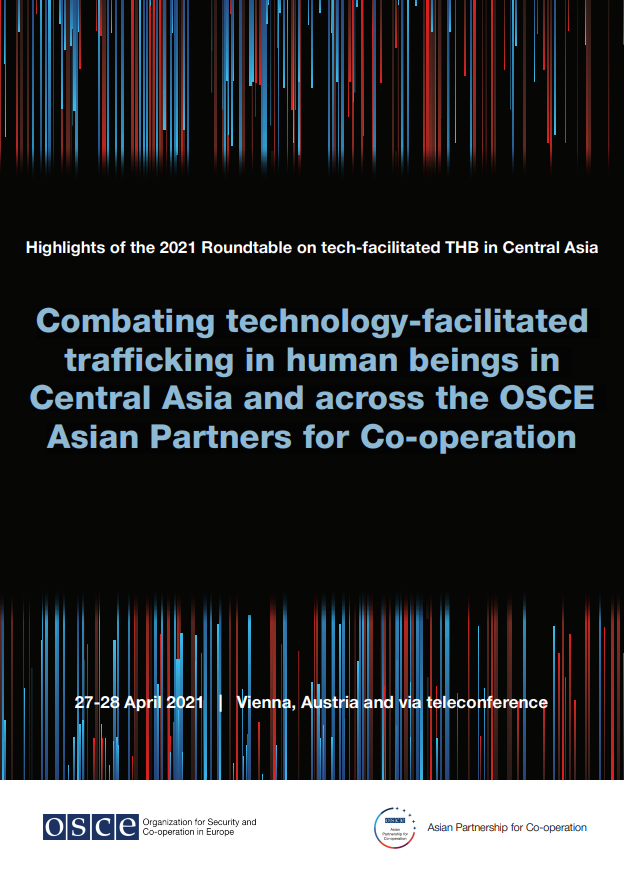This paper provides a brief summary of the Roundtable on ‘Combating technology-facilitated trafficking in human beings in Central Asia and across the OSCE Asian Partners for Co-operation‘, held by the OSCE on 27-28 April, 2021.
The major objective of the Roundtable was to discuss how technology is being misused by traffickers in human beings in Central Asia and across the OSCE Asian Partners for Co-operation, especially at the stage of advertising victims of sexual exploitation on online platforms. The specific focus of discussion on the advertisement of victims is needed because this is the most visible part of technology-facilitated trafficking and offers more opportunities to identify victims and traffickers. Since the crime of trafficking for sexual exploitation is financially motivated and traffickers’ main goal is to earn as much illegal proceeds as possible, they need to advertise their victims on open platforms easily accessible for the buyers of sexual services. The Internet, especially the open web, is one of the most optimal platforms from this point of view because it provides traffickers and potential traffickers with an environment in which they can operate with an enhanced level of safety and anonymity and advertise their victims to a broad audience on hundreds or thousands of platforms with minimal costs.

